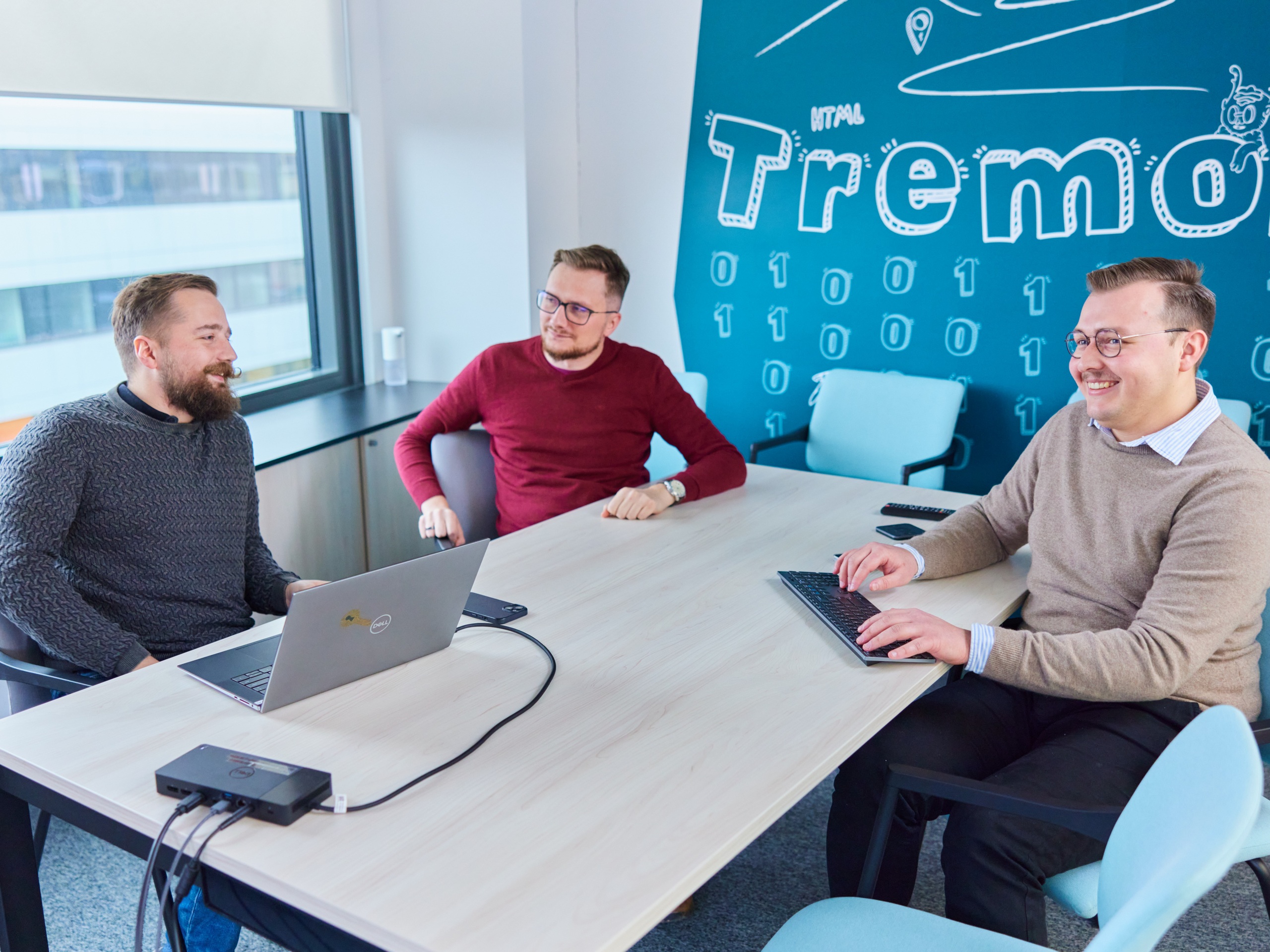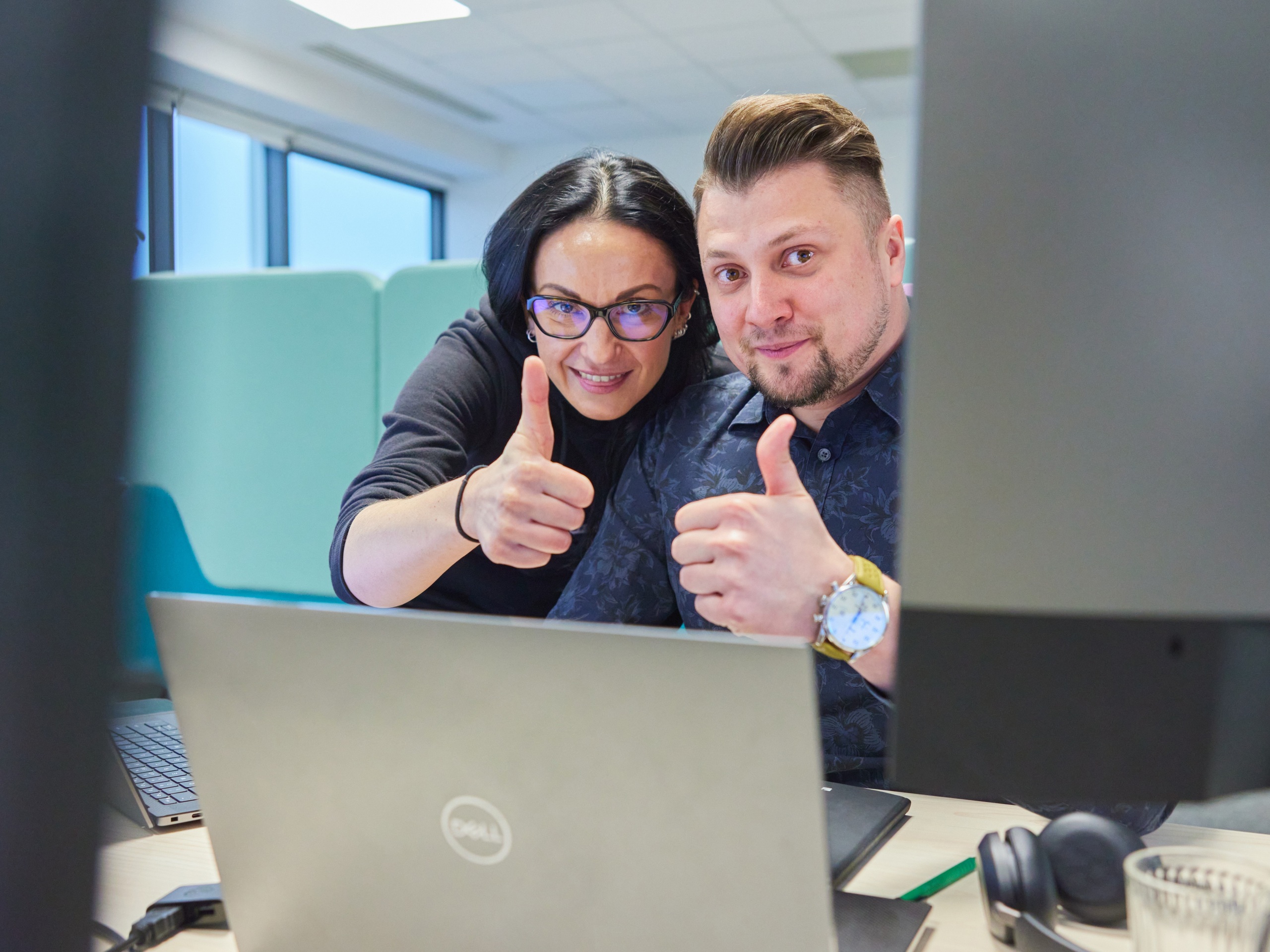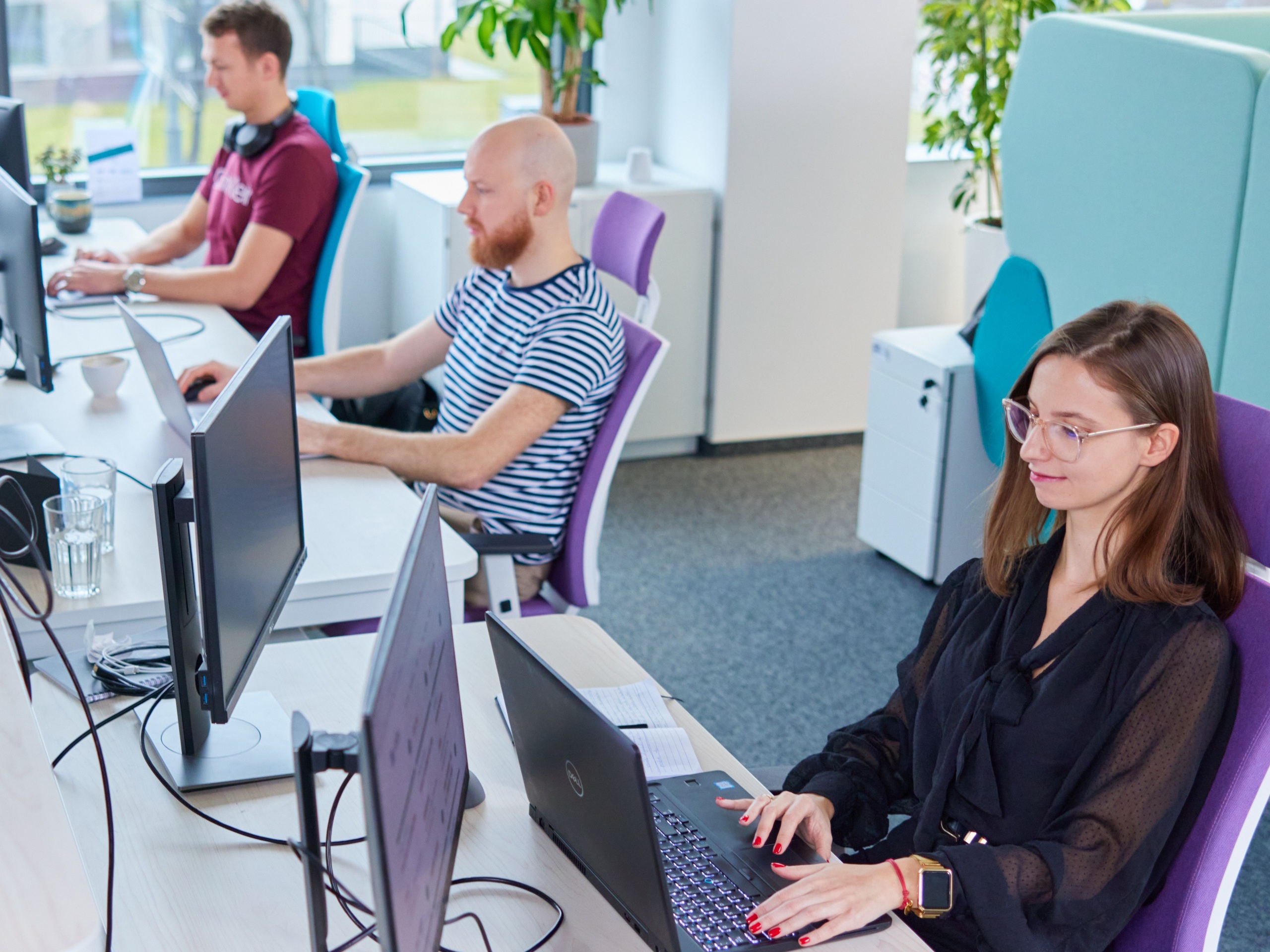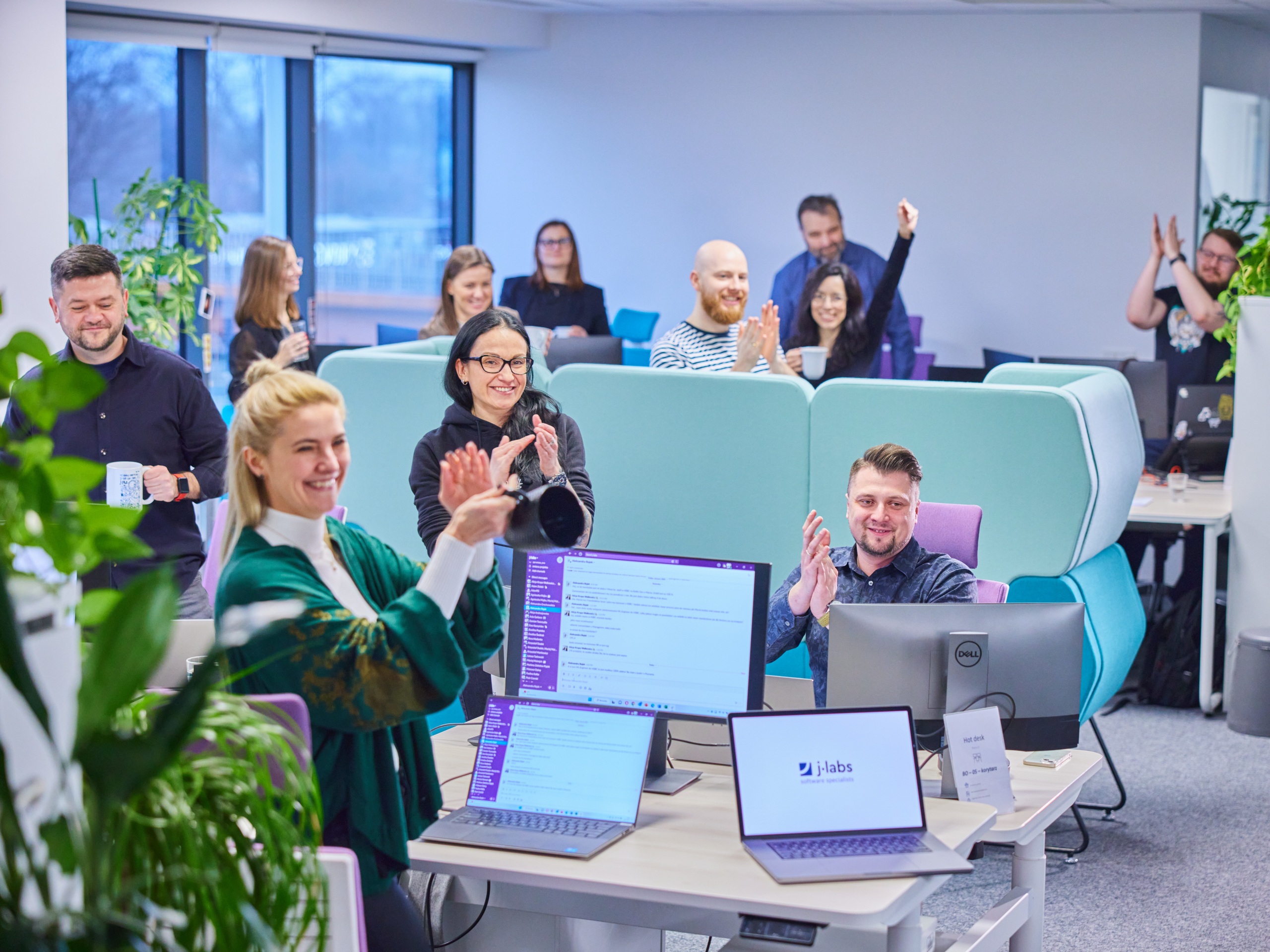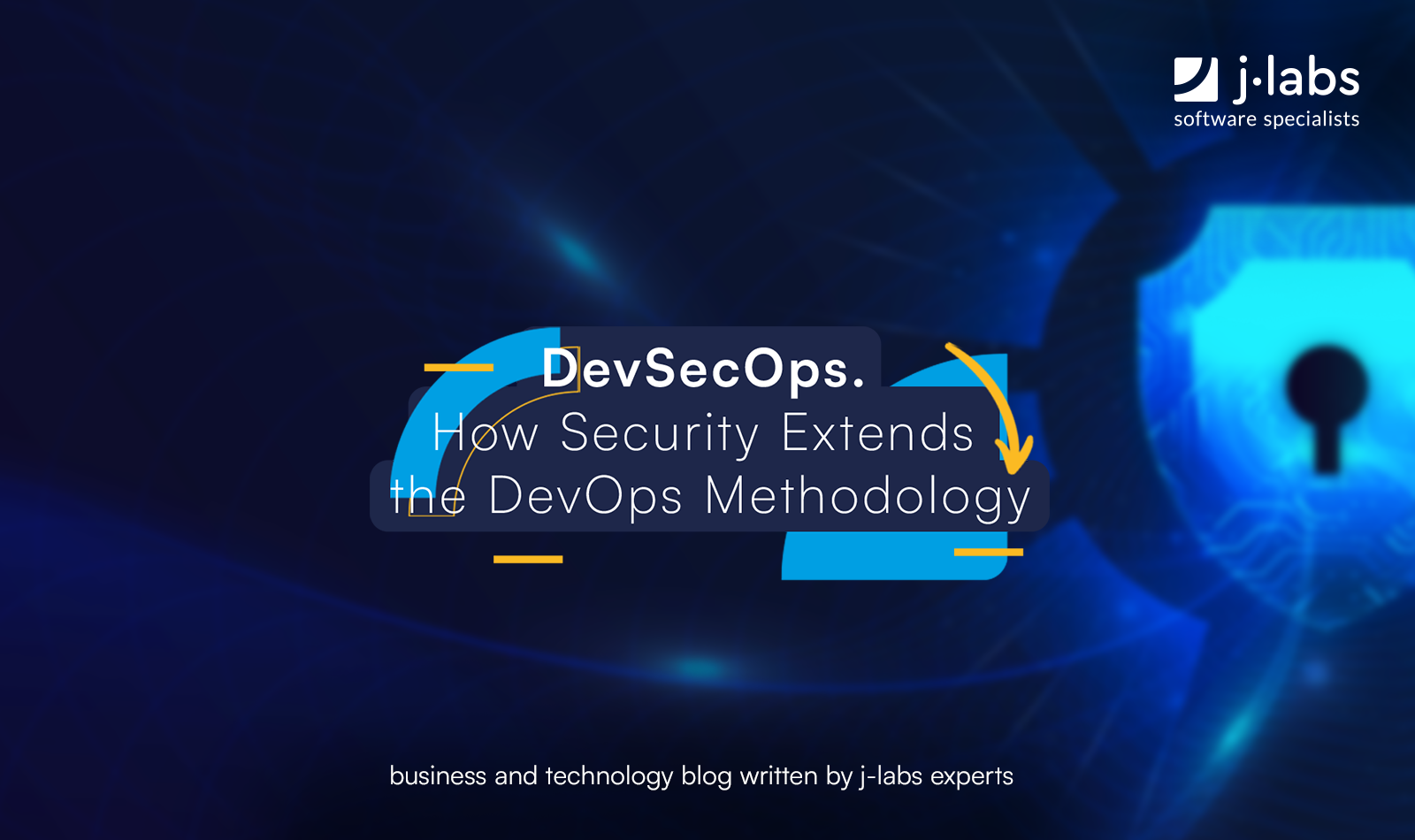Copyright law in relation to technology: an interwiew with Karolina Wrona, senior legal operations specialist at j‑labs
The law is lagging behind technology- this is a fact, but is that necessarily a bad thing? I believe that the law should be secondary –
– Karolina Wrona, Senior Legal Operations Specialist at j‑labs, discusses the dynamic changes in copyright law, the challenges of working with it in an IT company, and the legal issues emerging with the growing role of artificial intelligence in the job market.
What does working with copyright law look like in an outsourcing company?
It might seem that in a company focused on outsourcing, copyright-related matters are few and limited to the transfer of rights to the source code. Nothing could be further from the truth – copyrights are the foundation of our operations and an integral part of our daily work. That’s why their role in contracts (ensuring their proper protection) is so important. Additionally, working in an outsourcing company like j‑labs has an educational value – collaborating with clients from various jurisdictions provides us with a unique opportunity to observe how copyright regulations differ across legal systems and what rules apply to the transfer of such rights in other countries, practically worldwide.
Do you also have experience collaborating with other departments at j‑labs?
Of course! In addition to working on contracts with external clients, our “internal client” – j‑labs – is equally important. As part of the Legal team, I have the privilege of collaborating with many other departments, which not only allows me to apply my knowledge in practice but also to gain valuable insights from my colleagues in different teams. I believe that we perform our duties effectively only when we truly understand the issue at hand. Therefore, every new initiative is an opportunity for me to expand my knowledge – not just legal knowledge. I strive to approach each project individually, using the law as a tool to provide protection, not as a barrier that limits its implementation.
Why copyright law?
To be honest, I didn’t expect to enjoy copyright law as much as I do. My journey with this field began in high school, and my passion for it grew during my law studies. Today, after seven years of working in this specialization, my fascination with copyright law remains strong, although it’s gradually making room for my growing interest in artificial intelligence. I occasionally put my knowledge to the test in industry competitions – last year, I became a laureate of the IP Challenge, also known as the Academic Polish Championships in Intellectual Property Law.
From what I know, these are unofficially referred to as the Academic Polish Championships in this field, and your team took first place there?
That’s correct. To stay up to date in this field, I participate in training sessions and webinars and continuously update my knowledge.
How do you find working in the IT industry? Has anything surprised you?
At first, I was intimidated by the presence of so many experienced engineers, most of whom had over a decade of experience in the IT field. The first training sessions I conducted for them were especially stressful – I was particularly worried about questions I might not be able to answer. Fortunately, it wasn’t as bad as I feared – the first session was well-received, and with each subsequent one, I gained more confidence. I grew to enjoy sharing knowledge so much that this year I also became a university lecturer – I teach a course on “Copyright and Media Law” at the University of the National Education Commission in Kraków.
Another pleasant surprise was the amount of copyright-related work in the IT industry. I didn’t expect that the Legal department at j‑labs would offer me so many opportunities to apply my knowledge and skills in my favorite field. On a daily basis, I also collaborate with departments such as marketing, where I frequently provide support on issues related to marketing campaigns.
What are the biggest challenges in this area in the era of AI?
I would say that broadly understood security is of key importance – covering information security, data protection, and code security, which ties directly to copyright issues. Clients expect that the product they purchase will be free of legal defects – that’s what they’re paying for. I believe this is a significant challenge in the current era of AI, where tools like ChatGPT can provide answers on virtually any topic. However, as we know, AI can hallucinate and paraphrase, posing real risks to the reliability and quality of our work.
At j‑labs, we place a strong emphasis on quality, which is why we strive to raise awareness among our engineers regarding the security of the code they create. We regularly organize training sessions and address their concerns. Recently, I had the pleasure of conducting a training session on artificial intelligence in programming, where I highlighted security issues in the context of AI for our team members.
How have the duties and requirements of a legal professional in the IT industry changed?
In short – a lot. Different industries focus on different aspects of copyright law, and the IT industry is no exception. Some topics required me to undergo additional training, but continuous learning is an integral part of any lawyer’s job. I’m not complaining, though – it brings me great satisfaction to improve my skills and share the knowledge I’ve gained with others.
In my opinion, a good lawyer should not only know the legal regulations but also understand the technologies they work with. I can’t properly safeguard my client’s interests if I don’t understand the subject of our discussions. The biggest challenge in the IT industry is keeping up with the rapidly evolving market, but I also find this immensely rewarding. I’m glad to be an expert in a field that is developing so dynamically and gaining popularity at a dizzying pace.
Interview conducted by Michał Gil.
Meet the geek-tastic people, and allow us to amaze you with what it's like to work with j‑labs!
Contact us